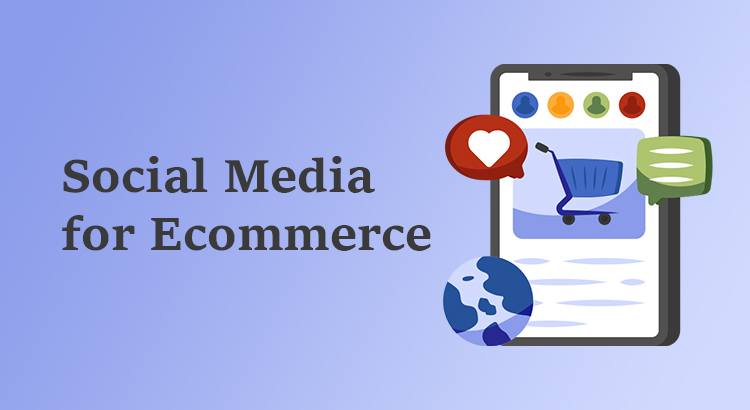With the ever-growing number of Internet users turning to online shopping, leveraging social media platforms has become essential for businesses to thrive in the industry. In this comprehensive guide, we delve into the realm of social media for ecommerce, exploring its benefits, practical tips, and the best platforms to harness its potential.
What Is Social Media for Ecommerce?
Social media for ecommerce encapsulates the strategic use of various social platforms to market and promote online stores.
It goes beyond merely establishing a presence; it’s about crafting compelling narratives, engaging with audiences, and driving conversions.
A social media marketing company can further enhance these efforts, helping ecommerce businesses amplify brand visibility, foster customer relationships, and ultimately boost sales.
Social Commerce vs. Ecommerce
Social commerce represents a fusion of social media and ecommerce, enabling users to purchase products directly through social platforms.
While traditional ecommerce involves transactions primarily on dedicated online stores, social commerce seamlessly integrates the shopping experience within social media environments.
This convergence presents immense opportunities for businesses to tap into impulsive buying behaviors and streamline the path to purchase.
Related Article: Social Commerce Strategies and Best Practices
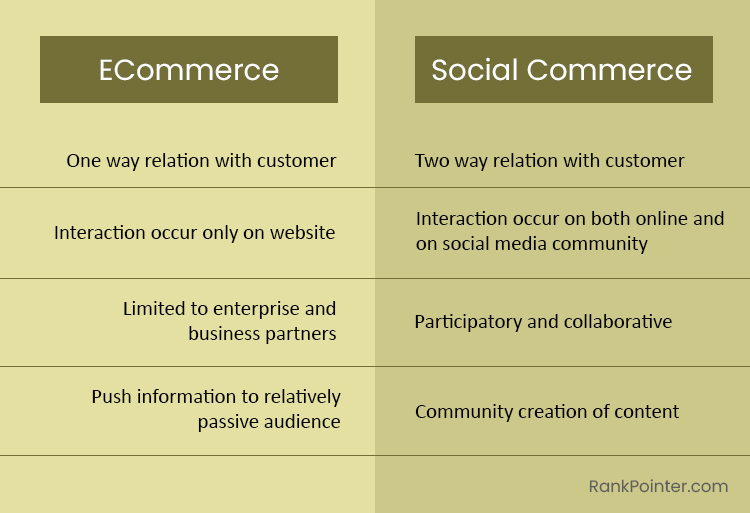
4 Benefits of Social Media Marketing for Ecommerce
1. Expand Your Online Reach
With a significant portion of the global population actively engaging on social media, platforms like Facebook, Twitter, and Instagram offer unparalleled reach for ecommerce retailers, facilitating brand exposure to diverse audiences.
2. Targeted Audience Engagement
Social media provides a unique avenue to connect with potential customers in environments where they already spend considerable time, enabling personalized engagement and targeted marketing efforts.
3. Casual and Interactive Communication
Unlike traditional advertising channels, social media fosters a more casual and interactive mode of communication, allowing brands to initiate genuine conversations, address customer queries, and build authentic relationships.
4. Boost Word-of-Mouth Marketing
Social media empowers satisfied customers to become brand advocates by sharing their experiences and recommendations with their social circles, thereby amplifying brand visibility and credibility.
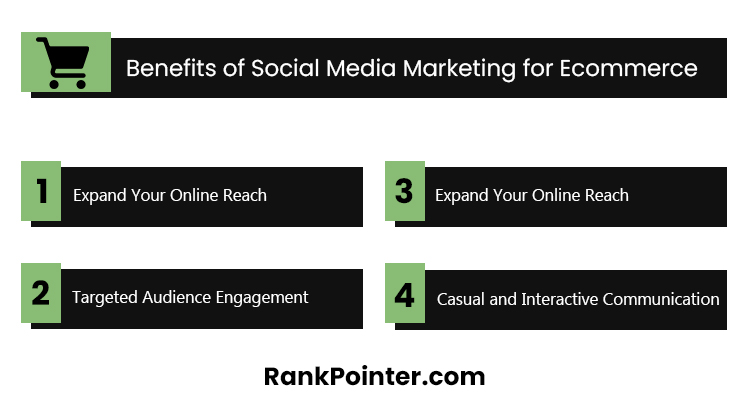
5 Tips for Social Media Marketing for Ecommerce
1. Focus on Audience-Centric Networks
Concentrate your efforts on social platforms where your target audience is most active, maximizing your impact and fostering deeper connections with potential customers for effective engagement and brand promotion.
2. Dedicate Time to Engage
Allocate dedicated time to actively interact with your audience, responding promptly to comments, queries, and reviews. Demonstrating responsiveness not only fosters trust but also showcases your commitment to customer satisfaction.
3. Embrace Visual Storytelling
Harness the power of compelling imagery and videos to captivate audiences and drive higher engagement rates. Share visually appealing content that showcases your products, elicits emotions, and resonates with your target audience.
4. Amplify Reach Through Promotion
Strategically boost your content through paid promotion to extend your reach and accelerate marketing goals. Invest in targeted advertising options offered by platforms like Facebook to optimize campaigns for increased engagement, views, and conversions.
5. Harness the Power of Micro-Influencers
Collaborate with micro-influencers within your niche to reach your target audience authentically. Leverage their engaged followings to drive conversions and build brand advocacy cost-effectively, amplifying your brand message organically.
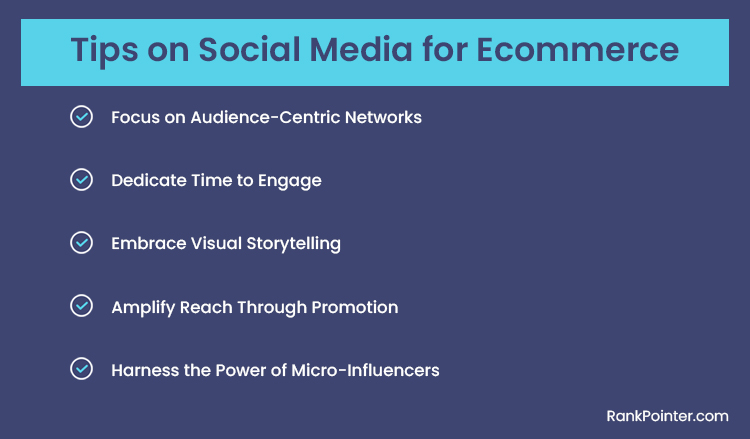
4 Best Social Media Platforms for Ecommerce
1. Facebook
With its vast user base and robust advertising capabilities, Facebook remains a cornerstone for ecommerce marketing, offering unparalleled opportunities for brand promotion and customer engagement.
2. Instagram
Renowned for its visual-centric nature, Instagram provides an ideal platform for showcasing products, engaging with audiences, and humanizing your brand through compelling storytelling.
3. Twitter (Now X)
Twitter’s dynamic and real-time nature makes it conducive for fostering conversations, sharing updates, and addressing customer inquiries, making it a valuable channel for ecommerce businesses to connect with their audience.
4. Snapchat
While relatively newer in the marketing environment, Snapchat offers a unique opportunity to provide behind-the-scenes glimpses, foster authenticity, and engage with younger demographics in an immersive and interactive manner.
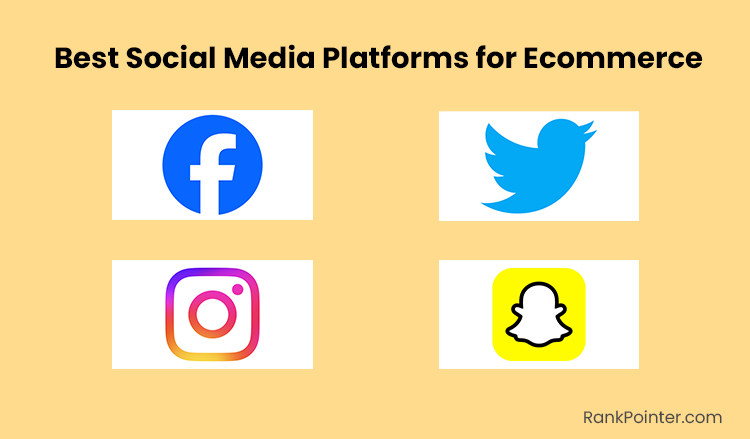
Conclusion of Social Media for Ecommerce
By utilizing the power of social platforms, ecommerce businesses can expand their online reach, engage with their target audience, and drive conversions effectively. From strategic content creation to leveraging influencer partnerships, integrating social media into your ecommerce marketing strategy is essential for staying competitive and thriving in the industry.


